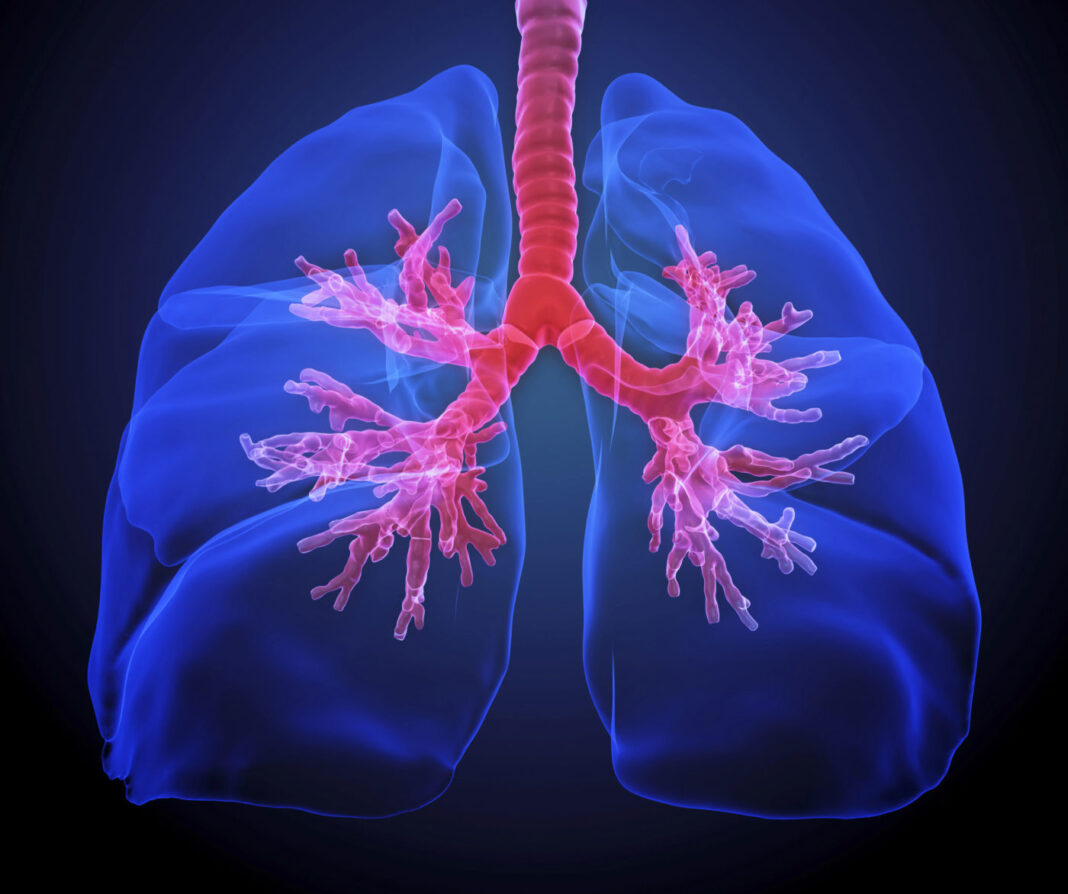Lung cancer is a leading cause of cancer death globally, affecting 1.8 million people around the world. Immunotherapy has been effective in helping treating people with lung cancer; however, it does not work for all patients. Now, scientists at the Francis Crick Institute report they have discovered that using immunotherapy alongside a drug that blocks a common gene mutation in lung cancer could be a promising new combination therapy for certain types of lung tumors.
The findings are published in Science Advances, in a paper titled, “Therapeutic KRASG12C inhibition drives effective interferon-mediated antitumor immunity in immunogenic lung cancers.”
“Recently developed KRASG12C inhibitory drugs are beneficial to lung cancer patients harboring KRASG12C mutations, but drug resistance frequently develops,” wrote the researchers. “Because of the immunosuppressive nature of the signaling network controlled by oncogenic KRAS, these drugs can indirectly affect antitumor immunity, providing a rationale for their combination with immune checkpoint blockade.”
In this study, the researchers characterized how KRASG12C inhibition reverses immunosuppression driven by oncogenic KRAS in a number of preclinical lung cancer models with varying levels of immunogenicity.
“In recent years, there has been a lot of attention on whether combining immune checkpoint blockade, a type of immunotherapy, with a KRAS-inhibitor could be effective. This inhibitor works by blocking a mutated version of KRAS, a gene that helps control cell growth and death. As the mutation is present in about one-third of lung cancer cases, it is a promising therapeutic target,” explained Julian Downward, PhD, author and principal group leader and associate research director at the Crick.
The researchers studied the effects of combining immune checkpoint blockade with KRAS inhibitors, in mice. In tumors where there were already high numbers of active immune cells, so-called “immune hot” tumors, the treatment successfully controlled the cancer. However, in cases where the immune system was not able to mount a strong response, the combination treatment was ineffective.
The researchers are calling for clinical trials to include patients with “immune hot” tumors, to ensure that the potentially effective combination is tested on those most likely to respond.
“KRAS inhibitors are very new so there’s still a lot to learn about when they are most effective and which other treatments they can safely be combined with to give patients the best chance of living longer.
“Our study is an important part of this, suggesting that combining immune checkpoint blockade with a KRAS-inhibitor is likely to work in specific cancers. It is crucial this is factored into the design of future clinical trials,” explained Miriam Molina Arcas, PhD, author and principal research scientist in the oncogene biology laboratory at the Crick.
The team also investigated the impact of the KRAS mutation on the tumor, the environment around the tumor, and the immune system.
They found that, in lung cancer, mutated KRAS weakens signals which help activate the immune system while boosting hormone-like molecules which help create an environment that supports the tumor.
The scientists will continue their work studying the role of this family of genes in cancer, including researching ways it might be possible to stimulate the immune system to eliminate cancer cells that have developed resistance to RAS inhibitors.


